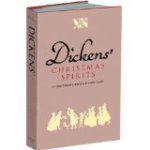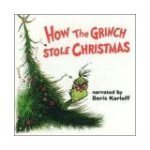Devon Trevarrow Flaherty's Blog, page 80
February 1, 2013
Oh the Weather Outside is Frightful
Don’t know if I will continue to let you know what I am reading and make it a tradition, but I thought I would start, anyhow. Here are the books I read in January:
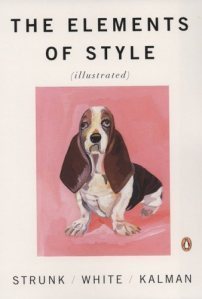 Benevolent, like 93 times, and also most of Webster’s New World College Dictionary (3rd edition, 1996), Roget’s 21st Century Thesaurus (1992), and The Writer’s Digest Flip Dictionary (2000), plus Essentials of English (4th ed., 1990), The Elements of Style (illustrated, 2005), and Writing Tools: 50 Essential Strategies for Every Writer (2006). I could use to update my dictionary and also to replace Essentials with The Chicago Manual of Style. Otherwise, I love the book Writing Tools. I would recommend it for any writer, old or new to the field.
Benevolent, like 93 times, and also most of Webster’s New World College Dictionary (3rd edition, 1996), Roget’s 21st Century Thesaurus (1992), and The Writer’s Digest Flip Dictionary (2000), plus Essentials of English (4th ed., 1990), The Elements of Style (illustrated, 2005), and Writing Tools: 50 Essential Strategies for Every Writer (2006). I could use to update my dictionary and also to replace Essentials with The Chicago Manual of Style. Otherwise, I love the book Writing Tools. I would recommend it for any writer, old or new to the field.
I finally finished Letting Go of Perfect, by Amy E. Spiegel. It had nothing to do with the book–that I was delayed in finishing–and everything to do with my having loaned it out. It’s okay, anyhow, because her writing is easily broken down into short thoughts and meditations. I could use to let go of perfect. How about you?
I have been trying to do a little self-published reading. I had a few titles on my shelf when I chose Winnemucca by reading blog reviews. I am going to avoid doing reviews of self-published books because I really don’t want to get in some sort of showdown, and I can point you to their reviews on Amazon and online. But I did read it.
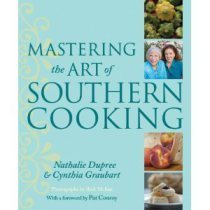 This was a real cookbook month for me, winding down from 12-hour editing sessions and coming off of the Christmas holiday. I read (and I do mean read) Bert Greene’s Kitchen: A Book of Memories and Recipes (1993); Essentials of Classic Italian Cooking (1992); Mastering the Art of Southern Cooking (2012); and Authentic Mexican (2007). I have been collecting cookbook tomes for a few years (as opposed to just any ol’ cookbook), and three of these books were Christmas gifts aimed at that purpose. The fourth I couldn’t help snag at a used book store because I think Bert Greene is about the best cookbook author of all time. I am pleased with all four of them. Authentic Mexican is my least favorite, with the most convoluted recipes, the fewest recipes, and distractingly high-falutin’ language. As for me and my house, we will learn how to make a decent biscuit, and perhaps eggplant Parmesan on the way.
This was a real cookbook month for me, winding down from 12-hour editing sessions and coming off of the Christmas holiday. I read (and I do mean read) Bert Greene’s Kitchen: A Book of Memories and Recipes (1993); Essentials of Classic Italian Cooking (1992); Mastering the Art of Southern Cooking (2012); and Authentic Mexican (2007). I have been collecting cookbook tomes for a few years (as opposed to just any ol’ cookbook), and three of these books were Christmas gifts aimed at that purpose. The fourth I couldn’t help snag at a used book store because I think Bert Greene is about the best cookbook author of all time. I am pleased with all four of them. Authentic Mexican is my least favorite, with the most convoluted recipes, the fewest recipes, and distractingly high-falutin’ language. As for me and my house, we will learn how to make a decent biscuit, and perhaps eggplant Parmesan on the way.
“Genesis“, from The Bible, mostly NASB translation. Am still on Abram before he becomes Abraham.
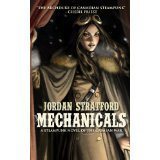 I hate to mention Kickstarter, but last year I supported the author of Wollstencraft, a very promising girls’ series flawlessly illustrated and soon to be published. When you support someone on Kickstarter, you not only get the joy of helping fund something you believe in, you get updates from the artist as they progress with your money in hand. Jordan Stratford, the author, sent an update recently in which he offered his steampunk novel, Mechanicals, for free. By a fluke of one-click technology I ended up paying $2.99 for it, but that is what I am reading right now. That, and other things, but you’ll have to wait until next month to hear about those…
I hate to mention Kickstarter, but last year I supported the author of Wollstencraft, a very promising girls’ series flawlessly illustrated and soon to be published. When you support someone on Kickstarter, you not only get the joy of helping fund something you believe in, you get updates from the artist as they progress with your money in hand. Jordan Stratford, the author, sent an update recently in which he offered his steampunk novel, Mechanicals, for free. By a fluke of one-click technology I ended up paying $2.99 for it, but that is what I am reading right now. That, and other things, but you’ll have to wait until next month to hear about those…


January 26, 2013
Mothering the Novel
I have been repressing this blog post, because it’s a little cheesy and may seem too far-fetched for applicability. However, I can restrain myself no longer. Being an author is like being a mom, and the book is your baby. It is.
Here’s why.
Now no disrespect to moms. They are pretty cool. I’m a mom. I have a mom. And mom’s have low street cred. No one can do what they do, because they are on 24/7, making all the sacrifices, keeping their kids on their minds in everything…
Actually, this is just entrenching my argument.
My book is my baby because…
I made it. I had a little help, but largely it was formed from what came from me, went through my body, and was influenced by what I did and experienced.
It hurt. At least sometimes. You concentrate on the joy that is before you and will yourself to relax. It’s called hope.
I’m not doing it alone. But lots of times I am alone. It gets lonely and intense.
It takes time. Lots and lots and lots of it. And by that I mean each day, and I mean over the course of your years, your life.
I don’t get much recognition or thanks, at least while I’m in the thick of it. Maybe never.
It takes over my brain so that it buzzes when I try to go to sleep, distracts me when all I’m trying to do is converse with the human in front of me. This means I consider it when I am picking out a peanut butter, but it also means I can’t always shake it off my leg when I need to.
Speaking of sleep, I get woken up in the middle of it to tend to something pressing, do some good work, before going back to my own, warm bed. Since I am a champion sleeper, this happens less to me than others.
Speaking of sleep, I end up getting less of it than intended because life AND authoring/mothering takes more than the time allotted in the day.
The laundry suffers. The dishes suffer. The cleaning suffers. And, in case you didn’t notice, so does my social life. Oh, I mean, my lack of social life.
I am frequently asked to make sacrifices that hurt in curious ways. They call this killing your darlings.
It’s scary as heck.
Part of it is putting one foot in front of the other. Part of it is being really, really, really determined and committed.
I expect one thing, I get another. Like every day. I want it to be a doctor, it becomes a gas station attendant.
I get so immersed in it, there is no hope of seeing it clearly.
I do my best but EVERY DAY I have a crisis wondering if its good enough. Therefore, I learn how to accept it on its own terms, as less-than-perfect.
One of my First Readers said to me, “What a labor of love!” The more I thought about it, the more I felt writing and publishing is, for me, a labor of compulsion and pleasure. Housekeeping and raising kids is the labor of love. But perhaps I am wrong. Maybe writing, too, is a labor of love. Love, after all, is commitment. And that’s what gets writers from point A to point B. Sure we all have some amount of aptitude and unique combination of talents, but what sets us apart as authors (especially those working through physical, social, economic, emotional or mental restrictions, and even parenting (and especially mothering)), is commitment.
I do, I do love my book. Perhaps it’s like a marriage? I feel another blog entry coming…


January 23, 2013
Cover Shenanigans
 So maybe not shenanigans. Maybe more like excitement. And I’m a little obsessed about getting this part right because it is so, so darn important. Whuddya’ think? (Don’t look too closely b/c the text is not accurate, yet.)
So maybe not shenanigans. Maybe more like excitement. And I’m a little obsessed about getting this part right because it is so, so darn important. Whuddya’ think? (Don’t look too closely b/c the text is not accurate, yet.)


January 13, 2013
The Life of a Writer in a Few Hundred Bulletted Words
Things I don’t particularly like about being a writer:
Marketing
Publicity
Talking to people, especially answering questions on the spot (Crotchety!)
Not getting paid for long periods of work
Tweeting
Distractions (from working at home)
Not being taken seriously
Self doubt
Snooty writers and snooty critics
Needing a GRE or 12 conferences in Hawaii
Editors, agents, and publishers (OK, not really, but I don’t like not being read)
Poor royalties for little to no representation
Longevity of each project
Discouragement
Being asked to write and edit everything (Does this really happen?)
Things I really like about being a writer:
Sudden spurts of creativity
Writing
Reading back over the stuff and realizing it’s not all bad, and far from it
Having people talk about characters like they are real people
Reading about writing, or just plain reading
The challenge
The adventure
Creating my own deadlines, job description, and projects
Doing what I’m clearly built to do
Design elements
Working at home, or wherever
People assuming I am as poor a writer as the next guy
Taking one step at a time until I realize how far I’ve come
Saying I’m a writer and making it be so
Ruminating on story/brain-storming
Having my daughter ask me to read my own stuff to her
Being sassy
Having a “cool” job
The smell of a new book
Things I could take or leave:
Blogging
Editing and keying
Computer stuff
Book readings
Being an entrepreneur
The community
Career day
Things I look forward to:
My first check
Making money doing what I love
Travel
Coming across a nice review or an admirirer
Re-meeting old friends
Financing my own career and my own projects
Legitimacy
Awards
Speaking of things I don’t like, I am often getting a (completely understandable) question: “What is your book about?” I only hate this because I am terrible at answering questions like that, and I often end my blundering by saying that’s why I WROTE the book, because I can’t TALK it. But let’s face it: I need a schtick if I want people to pick the darn thing up and read it. So let’s do this thing once and for all. By the time I blog next week, I will have a complete short and long version in answer to that question, which will also mean I have something I can use for online and book cover promotion. Sweet.


January 4, 2013
Tripping Off the Block
Occasionally, in the life of a writer, your job demands that you curl up in the fetal position and bawl your eyes out. Maybe it’s only happened to me once, but I’m pretty sure it’s not the last time.
You see, because I have only been a part-time writer (and full-time mom with a double-full-time husband), it has taken me way longer than ever imagined to finish my first book. In all honesty, I feel like the once-every-year-or-two kind of full-time author, but marriage, motherhood, even poverty, have relegated my first passion to the back burner, the crowded cubbies of my life. That said, a year and a half ago I put the last word on the rough draft of the first novel I decided to concentrate on. (I actually have several more in the works, as well as finished articles, poetry, and even a short story). Then I started shopping an agent. With a suffering economy and the advent of e-readers, it was a terrible time for that step. So after a year–and only one agent who would even read one line of my writing–and my aunt made a fateful call. She phoned me up from Michigan (my home town) and put the bug in my ear (never mind that my husband had been suggesting it for years): indy publish.
She is an aspiring writer herself, but has put it off mostly to continue her career in editing. She very much believes in me. So we agreed to look into self-printing; we both read articles, I ordered a couple books, surfed the internet. Then we decided to walk the road together. I don’t need to go into the pros and cons here, so suffice it to say I decided to go ahead. Instead of jumping in on a new book–which might have been better, who knows?–I began with the only complete novel I had going for me. I knew it was not the best book I could write, but after some deliberation, I thought I could make it much better, then market it, publish it, and make hopefully enough money to sustain writing another book, an even better book.
Fall time, my mom watched my at-home son 1-2 days a week and I worked hard those days, adding a whole story line, killing my darlings, slaying characters. In December, at the last moment of my self-imposed deadline, I put the last word (again) on the page. A longer novel. Tighter. More interesting, for sure. Maybe not my life’s work, but I have so many more things spinning around… I sent the “final” draft out to my first readers (there are six of them who have agreed to read, although not strictly to my deadlines) and asked that they return it before tomorrow, the 5th of January. My calendar includes a publication in March, and may I add, I have already spent months building an online platform and being a fledgling marketer. I even started a tiny press. Facebook. Twitter (oi!). Author photos. Business cards. And of course blogging.
My husband, Kevin, was the first one to get back to me. Last night, slightly before midnight, he walked in the room with a big grin on his face. (Let me say, even though I have been sick with nerves the past couple weeks due to the vulnerability of this stage and the ones to come, Kevin has gone from trepidatious (thinking, admittedly, that after his initial read a couple years ago, this might be the book I have to “get out of the way” to get to the next) to a dreamer. He was very pleasantly surprised by the changes the manuscript had received, leaving my special writing room to breathe in a much better plot line with more believable characters. He was excited for the end, and I tried to avoid asking him questions about the end before he got to the end.)
Back to that midnight rendezvous. He came out of the back of the house–like I said–with a big grin. “This is it!” he said. “We’re going to be rich! We’re going to be able to buy a house!” You’re making all our dreams come true! I knew I was right to invest in you! Whatever. And then a moment later, he plopped down beside me.
“You like the ending?”
“Yes.”
“But?”
“But I don’t really understand the last sentence.”
20 minutes later he was calmly brushing his teeth (I wouldn’t let him hug me) and I was balled up in the fetal position, bawling my eyes out.
Slap. In. The. Face. It’s as if my editor had sent me back my decade-in-the-making manuscript with a post-it note dotted with a smiley face: “Great story! But it’s not quite done yet.” Hold the phone! Stop the presses! Your whole life and all those crazy hopes you had about it have just been put on hold indefinitely. I mean, the reality is that I have a few places to go from here: chuck the book out the front door (I am sorely tempted); throw out the ending and spend as much time as it takes to re-write it; edit the last sentence until it makes sense and then re-evaluate the concept, again, taking as much time as it takes; take a deep breath and calm down.
The truth is, I don’t need to be a New York Times bestseller or get awesome, far-flung reviews (although I wouldn’t go kicking and screaming to either). What I do want is a readership around 10,000 (figures taken from an article and the assumption that I will put out a book every year or two) and some level or respect, or street cred (I think some sort of first novel award would do nicely). What I am terrified of is two things: not having a permanent career as a fiction writer and never getting the story right.
Ten years with no ending would be categorized as the second of those things. Then it would lead to the first.
I keep thinking this: How many darlings do I have to kill? All of them? I was CONVINCED that the last sentence–let alone the last scene–was it. I was never happy with my first ending, but this one I have been nursing for months. And that sentence! I love it! I am left with this morbid conclusion: as a writer you are SO CLOSE to your own writing that a great novel is not so much craft as it is an intuitive act, akin to tightrope walking or the blind leading the blind. Do I have the soul? I’m not kidding; I have been coming to the conclusion for many, many years that writing is what I am built for. That everything about me shouts writer, wants to write, thrives on writing. This is my best me. And am I a fool for wanting to be special?
Well, at least we know who the hero is here. My husband, who bearded the lion in its den when he came to me and said in all honesty, “I don’t get what you’re doing here.”
Cucumber pickles are often long and slender.


January 3, 2013
Hero Tales
About a week ago, my four-year-old son, Eamon, and I were having a conversation about heroes. He did not understand that there is a difference between superheroes and heroes, and began the conversation by stating that there are no real heroes. So I enumerated for him the types of heroes that a four-year-old would understand. This activity got me thinking about heroes, about the heroes in my own writing, and about the history of heroes. You are now my brainstorm benefactor.
According to the conversation I had with Eamon, these are the hero types:
Superheroes: Fictional people who have superpowers (naturally or created) which they use for good. Ex. Batman, Iron Man, Harry Potter. Not “real.”
Fiction Heroes: Fictional people who have normal powers but who act as heroes. Ex. Frodo. Also not “real.”
People Who Save Other People: like in this amazing article, which I am calling amazing largely because of the story about a blind man who saved his elderly, blind neighbor from a burning house. I suppose it could include people/animals who save people/animals/things.
People Whose Job It Is: like firemen, policemen, ER docs, soldiers.
People Who Do the Right Thing, Even When It’s Hard: Martin Luther King, Jr., Gandhi.
People Who Make Great Sacrifices for the Good: Mother Teresa.
Every-Day Heroes: like moms, dad, and nurses.
God. (Eamon added that one, right at the beginning.)
In modern times, the word “hero” is sometimes used synonymously with the antagonist or the love-interest of a story. Modern fantasy is more the venue for larger-than-life heroes, as opposed to more realistic works. Action movies (or other modern movies) feature a hero who is an ordinary person put in extraordinary circumstances, which they overcome. Their “superhuman” powers may include double portions of human characteristics, such as loyalty, strength, or courage. We also commonly refer to a hero as a figure (especially ancient) celebrated by the people. Think Joan of Arc or Brad Pitt or the latest American Idol. Or Guitar Hero.
Over the span of time, heroes could be defined as the personified cultural ideals, or at least that’s a pretty plausible argument. Think about it: whereas society was once determined almost exclusively by sovereign (power), more subtle influences have led to the idea of a hero who is the epitomization of the people’s ideals. Notably, from there, the fictional or trumped-up hero creates ideals, changes the future of the society. Which leads us to the question: is the hero archetype universal? I found mention of a book called The Hero with a Thousand Faces, by Joseph Campbell, and I am always curious to know if something truly is universal.
Historically, the word comes from the words warrior, protector, and defender. Originally a Greek concept (or so scholars say), a Greek hero was a sort of demi-god, complete with complicated relationships with the gods and goddesses, conceived unusually, attempted to be killed by a powerful man at their birth, hidden and reared by others in a foreign country, suffers a mysterious death at top of a hill where the body is not buried, leaves no successors, and leaves some sort of holy place. Of course these aren’t ALL true of every hero, but think how many heroes over time have shared all these specifics, not the least of which being Jesus Christ. The Greek Hero (that was her name) was a priestess from Greek mythology, someone who honored her vow of chastity and committed suicide from lover’s grief.
Fairy tale analysis includes the character of the hero. This hero must 1) embark on a quest, 2) react to the test of the donor (tests the hero and provides magical assistance) and 3) marry a princess-esque character. Fairy tale heroes are either seekers (who realize something on their own or prompted by the villian in a passive way) or victim-heroes (the villian kidnaps the hero or drives them out).
The romantic hero is a protagonist who rejects the establishment, is rejected by the culture, and who is self-centered. The narrative often rotates around this character’s thoughts, not their actions.
The tragic hero is the protagonist who has characteristics the audience feels sympathy or empathy for in a drama based on human suffering that provides catharsis for the audience.
The epic hero is brave and noble and has great achievement defined by grand events. To make them epic, the piece of work must be either strongly poetic, long in length, encompassing a large amount of time, or of characters or story that are impressive or majestic.
Nowadays, antiheroes are tres chic. Since heroic characteristics include morality, idealism, courage, and nobility, the antihero is a protagonist who does not possess these things. The earliest antiheroes might be characters like Don Quixote, although I would argue that for many antiheroes (or all?), what they lack in hero characteristics they make up for in other areas, for the purpose of underscoring these particular characteristics, a deficiency in society, and often for comic effect, as well. For example, Don Quixote may have been bumbling and deluded, but he was certainly idealist to the extreme. It’s funny and poignant. (Be that as it may, I found an article that called the antihero a modern fad, not bore out in best-seller lists, but only among the literary elite, and also “an aberration, not an advance” (http://martinturner.org.uk/martins-notes/the-four-kinds-of-heroes/, January 3 2012). I tend to agree, unless you consider what I just said about the antihero not really existing in the first place.)
I also really like the definition that I found, from the same place as the quote I just shared: “A person sufficiently admirable (for at least one quality) to be worth hearing about, but in a situation sufficiently arduous for the story to be worth telling.” (Ibid.) The hero can not be perfect, but must need to rally resources to overcome an incapacity in resources, physicality, morality, emotions, or intelligence.
If you are interested, it might be helpful to look at this webpage for a synopsis of types of characters in literature.
All of this leads me to the door of my own about-to-be-published novel. That’s where absolutely everything seems to lead right now. My dreams, my conversations, my thoughts, my dinner, my laundry, my… At any rate, it makes me want to explore how my own characters–or my main protagonist, at least–are heroes, and of what type. It makes me think I might be better able to determine what type of book I have on my hands, since at this point I would categorize it as “general literature,” or a satirical romantic comci-tragedy. Alright, maybe not a tragedy.
I’ll try to avoid spoilers, so this could be quite ambiguous.
My main protagonist is an attempted heroine, to be sure. She spends the whole book trying to save others, which is even a dialogue topic here and there. Well, to start out, she is the antagonist, so in some definitions that makes Gaby the heroine, already. The love interest could also be the definition of “hero,” and I think we can pretty clearly identify that main character as well (despite the thwarted nature of their “love”). She is, very hopefully, “a person sufficiently admirable (for at least one quality) to be worth hearing about, but in a situation sufficiently arduous for the story to be worth telling.” She’s imperfect, and she needs to rally resources (or get help, anyhow) to overcome her incapacity as idealist-to-the-extreme and relationally/emotionally/developmentally.
I’m not sure Gaby fits the category of ACTION HERO, since her circumstances are not larger than life, as they are life itself. Perhaps their outlandish nature makes Gaby’s overcoming seem more heroic? These characters–Gaby, Mihail, Melodie, Annie, Nadine, Sonja, Stellar, Adam, Mercedes, John, Betsy–do not have double portions of strength or courage or anything, but the normal tools of the human race. Mikhail is more of the burgeoning warrior, here. The legend characters can not be action heroes because they have superpowers.
GREEK: Gaby’s birth (as well as Annie’s and Stellar’s) is unusual, although no powerful males try to kill any of them and therefore there is no hiding away or being reared in a distant land (although there are a couple of formative periods spent abroad, by, again, Gaby and Stellar). In a very figurative way, it could be argued that Gaby “dies” on a “hill,” “is not buried,” and “leaves a holy place.” Really figuratively. But she does leaves successors, which is of essence to her heroism. So not a hero in the Greek sense.
FAIRY TALEs enamor me, and I am sure that plenty of my writing will have fairy tale components, some of them even overtly. This book, though, dwells more on the superhero or legendary hero vs. the everyday hero. That said, Gaby embarks on a quest of sorts (as a do-gooder), but that seems convoluted. She is reacting to prompts from both Jaden and The Queen and the general legends of Northwyth when she starts her path of philanthropy and is assisted by the donor (The Angel, who provides supernatural assistance to several characters). I don’t want to say if she marries anyone, but I think, on several levels, we can relate Gaby to a fairy tale heroine. Anyone else? Unless you consider the cosmic intervention of the mysterious seeds as motivators, no one else seems to fit (unless you start looking at the Northwyth legends themselves, but that is to be expected).
ANTIHERO: I suppose that my usual characters could be called antiheroes to the heroes of the Northwyth legends. This, actually, is sort of the point of it; real people need grace to get from point A to point B.
ROMANTIC HERO: Could Gaby be a romantic hero? She rejects the establishment because she’s a teenager, is rejected for the same reason, and is–like most people–self-centered. But I think this is stretching it. The proof is in the pudding: the book is written omniscient-ly, following the action of several characters, and not dwelling on the thoughts of any one.
TRAGIC HERO: Like I said right at the start, I think it’s possible this story is a comic-tradegy, or a romantic satire. Therefore, Gaby could be a tragic hero. Her mishaps (oh-so many of them) are her tragedy, even though her suburban life might seem anything but. The final scenes, I truly hope, provide catharsis for the reader.
EPIC HERO: It’s not an epic, unless you include the fantastic (or what might be called magic realism). The legend part of the book does sweep thousands of years, but I really don’t imagine many people wanting to label it that. It’s strongly descriptive (poetic might be a stretch) just because it’s literary fiction. Not long in length (at 350 pages), and the story is sort of impressive or majestic, again, if you include the legend part. In that case, The Queen, The Angel, The Sage, and Jaden (as well as Keir) are all epic characters and heroes, but they are built into the story as a sort of background.
Will Gaby and others come to be a symbol for the culture, admired by the culture? That is yet to be determined.
Their are also characters in the book that fit into the categories of modern FANTASY HERO, SUPERHERO, figures who are admired by the populace. In a way, the book itself is an exploration of the hero–which is maybe why I latched on to this idea for the blog. The contrast between the everyday heroes and the legendary heroes hopefully make people wonder about heroism. (Not to mention that I was trying to explore the meta narratives/legends and their possibility as real supernatural occurrences and what they might mean to us.)
Well, this has been fun.


November 28, 2012
Have Yourself a Merry Little Christmas
I’m going to jump the gun a little bit on my Christmas books and other entertainment list, since the holiday season is extended enough to allow you to actually check them all out. Here are my recommendations for books, movies and music to get you in the holiday spirit (and avoid further replays of Mariah Carey):
Now, this is a difficult category. Why? Great authors apparently don’t write Christmas, long-form fiction. Well, except for Charles Dickens… and then a handful of old, “light,” pastoral authors, like Laura Ingalls Wilder. Other than that, it’s almost all quick cozies that I’m not hugely fond of. But, if I remember correctly, when John Grisham released Skipping Christmas several years ago, it was almost a hit before it was published. Why? A lack. Hmm… Gives me an idea.
Well, here’s what I have got.
Charles Dickens’ A Christmas Carol. Pretty much the only option. It is so good, though, that it has been used and even abused over and over and over again. The book is the best version, in my opinion. Scrooged (1999) is pretty good.
The Northumbria Community’s Celtic Daily Prayer: Prayers and Readings from the Northumbria Community. This one makes the list because not only is it a lovely prayer book, but it has sections on Advent which we use for Advent and for our Jesse branch.
Now there are a very large number of kid’s books out there, but I can really say I love only two, so far; Chris Van Allsburg’s The Polar Express and Dr. Seuss’ How the Grinch Stole Christmas! I am far more partial to these books than to their–even most popular–movie counterparts.
As a matter of interest, I am going to try to get my hands on the other two books that I found during research that actually might be pretty good; Wally Lamb’s Wishin’ and Hopin’, O. Henry’s The Gift of the Magi and L. Frank Baum’s The Life and Times of Santa Clause. The second one might prove difficult to get.
MOVIES (in no particular order):
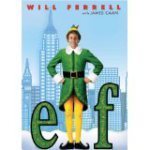 Love Actually (2003). A couple of the plot lines are not as good as the rest, and at least one of them is obvious and overdone (Hugh Grant’s), but there are others that make it more than worth it, like Emma Thompson’s. A great romantic comedy featuring Christmastime, and I pull it out year after year.
Love Actually (2003). A couple of the plot lines are not as good as the rest, and at least one of them is obvious and overdone (Hugh Grant’s), but there are others that make it more than worth it, like Emma Thompson’s. A great romantic comedy featuring Christmastime, and I pull it out year after year.
Elf (2003). This might be my favorite. It doesn’t get high ratings for its plot line, surely, but the comedy and comedic acting. It is so darn funny. “Buddy the Elf. What’s your favorite color?”
Bridget Jones’ Diary (2001). Another rom-com. Another one I pull out year after year. It’s not strictly a Christmas movie, but begins and ends with Christmastime and Christmas scenes. Who doesn’t want to open up a movie to Renee Zellweger doing drunken leg-kicks to Celine Dion?
National Lampoon’s Christmas Vacation (1989). This has to be the movie I’ve watched most over my lifetime. Perhaps it’s because I grew up with it, but I just can’t spend a holiday season without watching Aunt Bethany say the pledge of allegiance over the dried-out Christmas turkey.
A Christmas Story (1983). This is like The Wonder Years for Christmastime and funnier. And that’s a good thing.
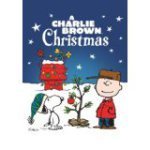 A Charlie Brown Christmas (1965). Out of all those classic Christmas TV shows, Charlie Brown is absolutely my favorite. I love him at lots of holidays, but Christmas is the best.
A Charlie Brown Christmas (1965). Out of all those classic Christmas TV shows, Charlie Brown is absolutely my favorite. I love him at lots of holidays, but Christmas is the best.
Arthur Christmas (2011). Sort of the new guy, but this kid’s movie is up there for all of us. My sister, who never buys movies, bought this one to add to her very select Christmas collection. Love the elf who wraps her head, and so will you.
Honorable Mentions: The Nightmare Before Christmas (1993) which I prefer to watch for Halloween, but it’s an either-or, It’s a Wonderful Life (1946), classic, and The Chronicles of Narnia: The Lion the Witch and the Wardrobe (2005) which is also not strictly a Christmas movie, but does include Santa Claus and a whole lotta’ snow. The you can watch parts two and three into the new year.
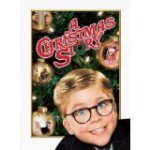 If I’m going to grab Christmas flicks for my kids, the two I would go for (besides those already mentioned) are: How the Grinch Stole Christmas (1966) and Rudolph, the Red Nosed Reindeer (1964). The ones from the 60s are still the best.
If I’m going to grab Christmas flicks for my kids, the two I would go for (besides those already mentioned) are: How the Grinch Stole Christmas (1966) and Rudolph, the Red Nosed Reindeer (1964). The ones from the 60s are still the best.
MUSIC:
Now this is a category that is giant chasm filled with everything you could imagine. Like books, terrible art abounds, but there are also plenty of things worth finding.
She and Him‘s A Very She and Him Christmas. Zooey Deschanel has a lovely voice and a very fun spirit, as well as impeccable taste.
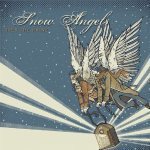 Over the Rhine‘s Snow Angels (and also The Darkest Night of the Year). Beautiful and mellow.
Over the Rhine‘s Snow Angels (and also The Darkest Night of the Year). Beautiful and mellow.
Ella Fitzgerald‘s Ella Wishes You a Swingin’ Christmas. I always like Ella, but she’s especially nice when you want to hear more traditional music while you’re doing all your traditional things.
Sixpence None the Richer‘s The Dawn of Grace and Leigh Nash‘s Wishing for This. It’s not a coincidence that these albums are similar; Leigh Nash is the singer for Sixpence, and her sweet voice has made her famous and addictive.
Mannheim Steamroller‘s Mannheim Steamroller A Fresh Aire Christmas or others. I admit that I like rock ballads and Aerosmith, and when I listen to this with my son (he loves it), it’s like Axle Rose is about the break in over that full orchestra and electric guitar. On a similar note, there’s Trans-Siberian Orchestra’s Christmas Eve and Other Stories.
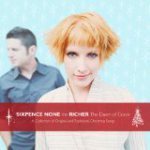 I also love to hear the good ol’ classics at Christmastime: Dean Martin‘s Christmas with Dino; Gene Autry‘s The Christmas Album; Frank Sinatra‘s A Jolly Christmas from Frank Sinatra; Perry Como‘s Greatest Christmas Songs; Bing Crosby‘s White Christmas. All this music really takes me back to my own childhood memories of Christmas Eve at my Great Grandma June’s, Aunt Sharon bopping around with kisses and hugs, a buffet out on the Christmas plaid-bedecked table, and relatives and dark wood paneling all around. It also helps that my Grandma and great aunts have always spoken–when referring to these singers–in tones not unlike my sister and I may one day use to refer to Kirk Cameron and Leonardo DiCaprio.
I also love to hear the good ol’ classics at Christmastime: Dean Martin‘s Christmas with Dino; Gene Autry‘s The Christmas Album; Frank Sinatra‘s A Jolly Christmas from Frank Sinatra; Perry Como‘s Greatest Christmas Songs; Bing Crosby‘s White Christmas. All this music really takes me back to my own childhood memories of Christmas Eve at my Great Grandma June’s, Aunt Sharon bopping around with kisses and hugs, a buffet out on the Christmas plaid-bedecked table, and relatives and dark wood paneling all around. It also helps that my Grandma and great aunts have always spoken–when referring to these singers–in tones not unlike my sister and I may one day use to refer to Kirk Cameron and Leonardo DiCaprio.
Honorable Mentions:Vince Guaraldi Trio’s A Very Charlie Brown Christmas, The Beach Boys’ The Beach Boys’ Christmas Album, Handel’s Messiah: The Complete Work, and Michael W. Smith’s Christmas Album, mostly for specific songs and nostalgia’s sake.
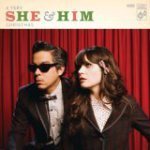 In order to get all the titles of albums straight, I had to do some serious internet prowling. As a result, I compiled a list of albums I would like to check out. Here is that list: Phil Spector’s A Christmas Gift for You from Phil Spector; Low’s Christmas; Barenaked Ladies’ Barenaked for the Holidays; Maybe This Christmas Tree; Chris Isaak’s Chris Isaak Christmas; Juan Esquivel’s Merry Xmas from the Space-Age Bachelor Pad; Glee, The Music’s The Christmas Album (and The Christmas Album, Volume 2); Michael W. Smith’s Glory, Christmastime, and It’s a Wonderful Christmas; A Very Special Christmas albums; John Fahey’s The New Possibility: John Fahey’s Guitar Soli Christmas Album; Robert Shaw’s The Many Moods of Christmas; Maybe This Christmas. They all seem like they would be cool.
In order to get all the titles of albums straight, I had to do some serious internet prowling. As a result, I compiled a list of albums I would like to check out. Here is that list: Phil Spector’s A Christmas Gift for You from Phil Spector; Low’s Christmas; Barenaked Ladies’ Barenaked for the Holidays; Maybe This Christmas Tree; Chris Isaak’s Chris Isaak Christmas; Juan Esquivel’s Merry Xmas from the Space-Age Bachelor Pad; Glee, The Music’s The Christmas Album (and The Christmas Album, Volume 2); Michael W. Smith’s Glory, Christmastime, and It’s a Wonderful Christmas; A Very Special Christmas albums; John Fahey’s The New Possibility: John Fahey’s Guitar Soli Christmas Album; Robert Shaw’s The Many Moods of Christmas; Maybe This Christmas. They all seem like they would be cool.


November 14, 2012
Another Day, Another Step
There are a whole lotta steps on the way to publication and eventual fame, but here’s to celebrating one of them: business cards came in the mail today! A little outdated? Sure. But still cool.


Top Twelve, Plus Some
Here is a list of my top twelve favorite books, out of the small fraction of total books in the world that I have actually read. I am an avid reader, but I just don’t have tons of time to sit around and read. Plus, there are plenty of books I have enjoyed, but they wouldn’t make this list. These are, indeed, the books whose stories, genius, and prose have stuck with me over time. They are in no particular order.
 The Things They Carried, Tim O’Brien. A real classic. The best war book. And such a discussion starter. One of those books as much about writing as it is about other things, although it’s the war metaphor that will haunt you at night and populate your preaching.
The Things They Carried, Tim O’Brien. A real classic. The best war book. And such a discussion starter. One of those books as much about writing as it is about other things, although it’s the war metaphor that will haunt you at night and populate your preaching.
One Hundred Years of Solitude, Gabriel Garcia Marquez. I suggest keeping a sheet of paper with notes regarding the characters and their very confusing names (like with War and Peace). Once you get that straight, the prose is so beautiful that sometimes it takes your breath away. Oh, and the imagery as well.
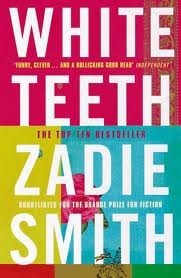 White Teeth, Zadie Smith. To me, this book is almost perfect. (The almost comes from a little overkill on the depravity, in my opinion.) It is fun and fine craft at the same time; ultimately about the characters but delivered in a one-two punch kind of plot line.
White Teeth, Zadie Smith. To me, this book is almost perfect. (The almost comes from a little overkill on the depravity, in my opinion.) It is fun and fine craft at the same time; ultimately about the characters but delivered in a one-two punch kind of plot line.
The Once and Future King, T. H. White. When I had read this, I fell into a trance and started reading anything and everything Arthurian. I was disappointed, since I had already read the best. You can go ahead and read the whole series by White, but I think you’ll find that this particular book has not been surpassed.
Emma, Jane Austen. I like the period literature, but we all know it can get a bit heavy and convoluted. Emma is my favorite, by far. Austen is at her best when you are appalled, engaged, sympathizing, and laughing all at the same time.
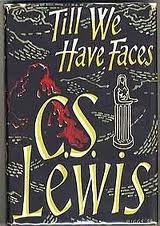 Till We Have Faces, C. S. Lewis. I know you have stopped reading because you don’t think Lewis belongs here. First, I say poo-poo. Second, I say you have not read Till We Have Faces. Completely other from the rest of his work, it is brief, but haunting and breath-taking and wonderful besides. I love it more with each read.
Till We Have Faces, C. S. Lewis. I know you have stopped reading because you don’t think Lewis belongs here. First, I say poo-poo. Second, I say you have not read Till We Have Faces. Completely other from the rest of his work, it is brief, but haunting and breath-taking and wonderful besides. I love it more with each read.
Rilla of Ingleside, L. M. Montgomery. I know that Montgomery is not for everyone. She is very heavy-handed on the sweet and the descriptive, but I read the Anne series at least once a year. Why? I get lost there. I love everyone and everything. I cry. And mostly, I walk away knowing what sort of person I want to be.
A Prayer for Owen Meany, John Irving. It’s been a long time since I read this and it could use a re-read, but man, can I still remember what it felt like to read Owen. It was a literary awakening. I have not found any Irving that I like half as much, but Owen I will always have.
King Lear, William Shakespeare. I lurve Shakespeare. I know that I am not alone and I do not go un-opposed. King Lear is my favorite, perhaps then followed by A Midsummer Night’s Dream and The Tempest.
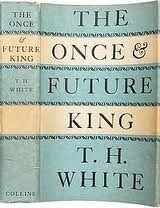 Blacks, Gwendolyn Brooks. I love poetry, but I find it difficult to really glob on to any one collection or one poet. I like the Brownings, but mostly I enjoy classic collections of poetry, like 100 Best-Loved Poems or The Giant Book of Poetry, or a Norton anthology. Who can ignore the song-call of “The Jabberwocky”?
Blacks, Gwendolyn Brooks. I love poetry, but I find it difficult to really glob on to any one collection or one poet. I like the Brownings, but mostly I enjoy classic collections of poetry, like 100 Best-Loved Poems or The Giant Book of Poetry, or a Norton anthology. Who can ignore the song-call of “The Jabberwocky”?
On Writing, Stephen King. This is my favorite book by Stephen King, easily, which is a little ironic. If you want to accompany the reading of it with some of his fiction, I recommend The Stand, The Green Mile, or “The Body.” Of course, I read a lot of books about writing, but this one remains a favorite and I imagine it always will.
The House at Pooh Corner, A. A. Milne. Who doesn’t love Pooh? Whenever I’m sick and laid up, I turn to Pooh in all forms. It’s simple and genius and very, very calming.
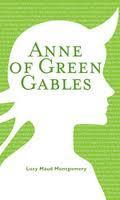 The Holy Bible. (I prefer The Living Bible and the new NASB translations, especially the Thompson Chain Reference.) I’m not sure I need to add this here, except for literary reasons. It really is an amazing book and for so many reasons (owing to its varied writers/writing style and its overall story arch). Of course, I love it mostly because I am a believer and it’s my sword and the story of the history of God and man and me.
The Holy Bible. (I prefer The Living Bible and the new NASB translations, especially the Thompson Chain Reference.) I’m not sure I need to add this here, except for literary reasons. It really is an amazing book and for so many reasons (owing to its varied writers/writing style and its overall story arch). Of course, I love it mostly because I am a believer and it’s my sword and the story of the history of God and man and me.
I also wanted to mention that there are a couple authors I like to read, but one particular book-or-another didn’t make the list: Barbara Kingsolver (start with Animal, Vegetable, Miracle or The Poisonwood Bible), Amy Tan (start with The Joy Luck Club or Saving Fish from Drowning), and the Harry Potter series. I know Harry is not great literature in the snooty sense, and yet it is a sort of great literature. It appeals to the masses because, logistically, it is seamless, and it’s also completely engaging on several layers. I read Potter when I need a break and want to get whisked away. It’s called escapism.
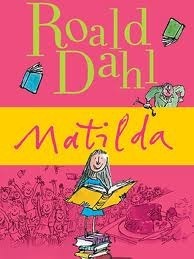 And on a further note, here are a few of my favorite books from when I was a kid: Caddie Woodlawn, Carol Ryrie Brink; The Wheel on the School, Meindert De Jong; Little House on the Prarie, Laura Ingalls Wilder; Anne of Green Gables, L. M. Montgomery; A Wrinkle in Time, Madeleine L’Engle; Pipi Longstocking, Astrid Lindgren; Matilda, Roald Dahl (which I would expand to anything Roald Dahl). And these days, for my kids, I like Shel Silverstein, Beverly Cleary and Lauren Child.
And on a further note, here are a few of my favorite books from when I was a kid: Caddie Woodlawn, Carol Ryrie Brink; The Wheel on the School, Meindert De Jong; Little House on the Prarie, Laura Ingalls Wilder; Anne of Green Gables, L. M. Montgomery; A Wrinkle in Time, Madeleine L’Engle; Pipi Longstocking, Astrid Lindgren; Matilda, Roald Dahl (which I would expand to anything Roald Dahl). And these days, for my kids, I like Shel Silverstein, Beverly Cleary and Lauren Child.


October 31, 2012
What to Do Tonight
To officially launch my blog, I would like to do an ode to the day, an ode to Halloween. Because, honestly, I like Halloween. I’m not big on witches and ghouls and evil in general, but I can’t help it: I LOVE dressing up and play-acting. I also love the cool weather, apples and pumpkins, home-making candy, roasting seeds, and walking around the neighborhood in the dark. And Harry Potter. And The Nightmare Before Christmas. Which brings us to it.
Serve up the Butterbeer and get those Pizza Rolls warming, because here is m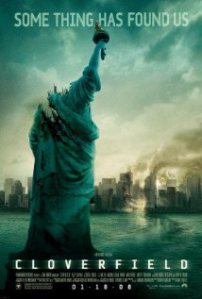 y reading and viewing recommendations for after (or during) the tricks or treats:
y reading and viewing recommendations for after (or during) the tricks or treats:
The Nightmare Before Christmas (movie). Perfect for the day after Halloween, sandwiched right between the holidays that it features. It might even get you in the mood for Christmas. Not really recommended for small kids, but I really enjoy Tim Burton’s endless imagination and slightly creepy vibe. You could also go with Coraline or The Corpse Bride.
Cloverfield (movie). You want a real scary movie? I don’t do them. But between M. Night Shyamalan and J.J. Abrams, I can get the willies without them.
Frankenstein (book). Classic. Not the movie, the book. Reading this for the first time as an adult, I was very pleasantly surprised. It’s a quick read for the time period, and it’s pretty darn meaningful besides.
The Ghost Eye Tree (book). That would be for the kids. It’s a picture book.
It’s the Great Pumpkin, Charlie Brown. For all of us. This is one of my favorites, probably because of the nostalgia, but that’s how the world turns, right?
The 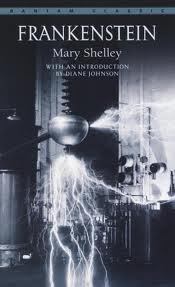 Witches (book). Roald Dahl. I know I said I didn’t do witches, but I am a Dahl fan. Too scary for my fantasy-oriented kids.
Witches (book). Roald Dahl. I know I said I didn’t do witches, but I am a Dahl fan. Too scary for my fantasy-oriented kids.
Donnie Darko (movie). Creepy AND about Halloween. And about time travel. And starring the Gyllenhaals. How can you go wrong?
Harry Potter and... (book series). True, Harry takes place year-round, for seven years. Even so, those Hogwarts people sure know how to throw a Halloween Bash (or a Deathday Party, either one). In fact, Harry Potter parties make great Halloween theme parties, but that blog entry was for another blog, another day.



